Photographs: BCCI Shreekant Sambrani
'More than Mumbai's progress into the last four stage, that game (and the one the previous day between Kolkata and Hyderabad, when Yusuf Pathan blazed a 22-ball 72 to ensure a second place finish for his team), revived spectator interest in IPL, something prominent by its absence.'
'Maybe it was the stench of match-fixing, maybe the far greater competition from the other IPL (Indian Political League) and maybe just plain viewer fatigue, but this edition of IPL was a pale shadow of its earlier avatars, says Shreekant Sambrani.
Predicting a week ago that Narendra Modi would have competition in the morning headlines on May 26, the day he became the Prime Minister of India, would have been an act of utter foolhardiness. And yet that is exactly what happened, courtesy the Mumbai Indians of the Indian Premier League, whose only distinction in the 2014 edition of the tournament was their inexplicable player acquisition and team selection, which made them cling stubbornly to the bottom half of the standings.
Their thrill-a-second triumph over the hitherto steady Rajasthan Royals ensuring them a place in the play-offs is what sports mythologies are made of.
Amid great fanfare and expectations, Mumbai opened the current edition of the IPL in the UAE, losing the game meekly to the none-too-brilliant Kolkata Knight Riders. They kept doing that all the way through their sojourn in the desert.
Their high profile Antipodean acquisitions at the two extremes, 'Mr Cricket' Michael Hussey of Australia, now in his sunset years, and debutant Corey Anderson, he of the 33-ball 100 (against India, no less), fired the viewers' imagination, but not much else.
The middle order, well it's just middle, with captain Rohit Sharma and the vastly under-appreciated Ambati Rayudu taking turns to score 30-plus. They struggled to reach 130, which even Lasith Malinga's deadly yorkers found too low to defend.
Come May and they returned without a win, the only team firmly in possession of that wooden spoon.
Please click NEXT for more...
Simmons started delivering as an opener
Image: Lendll SimmonsPhotographs: BCCI Shreekant Sambrani
On Indian soil, the team showed that its favourite movie was Perils of Pauline. In those century-old one-reelers, the dainty heroine is strapped to a conveyor belt headed towards a chain saw, or clinging to a twig gaping at a deep ravine, or in some such mortal danger until the dashing hero rescues her.
The Mumbai team chopped and changed its composition and batting order, 'resting' -- read dropping -- both Hussey and Anderson. Things barely worked, and they somehow managed to win four of the next six games.
Their late season acquisition, the Trinidadian, Lendl Simmons, started delivering as an opener, Hussey returned to some sort of form, and the mainstays -- Sharma, Rayudu and Kieran Pollard -- showed their pedigree through timely half-centuries.
They still languished in the cellar, but could take some heart from the fact that unlike their neighbours there, the Kevin Peterson-led Delhi Daredevils, they had a shot at the play-offs, however remote that appeared.
After completing 11 of their scheduled 14 games, the Indians held on to a slender, very slender strand of hope: They could win all the remaining games, the Hyderabad and Bengaluru teams with higher standings could lose at least two games each, and somehow, the Mumbai victory margins would become substantial enough to beat the required the net run rate.
Mind you, all of these had to happen if the hope was to become reality.
Please click NEXT for more...
Mumbai very nearly worked itself out of the race
Image: Lasith Malinga.Photographs: BCCI Shreekant Sambrani
Fate dealt them some good hands and some not so good ones. Hyderabad and Bengaluru flattered to deceive and lost the requisite number of games. Mumbai lost their pace ace Malinga to Sri Lanka's international commitments.
Jaspreet Bumrah, the understudy, was shaping well, but was hardly in the maestro's class. The spinners, Harbhajan Singh, Pragyan Ojha and S Gopal, were merely flashes in the pan, never a dependable threat like Sunil Naraine.
Above all, the team displayed a death wish, very nearly working itself out of the race.
In the twelfth game against Punjab, Mumbai were set for a comfortable win with overs to spare which would do wonders for their run-rate, until Simmons got into the 90s and decided to take just a single every other ball he faced until he reached.
Mumbai won, but that victory barely made a dent on the run-rate.
They started off the next game against the hapless in grand style, reaching 120 for 1 by the end of over 12 when Hussey was out. The only question then was by how much would their score exceed 200. Trust Mumbai to commit hara-kiri, almost.
The batsmen all were in tearing hurry to hit sixes, as though they wanted to reach 300. Mumbai did not last the stipulated 20 overs, folding up at 173. They won anyway, thanks to the inept Delhi batting, but again the run-rate hardly budged.
Rajasthan, too, lost that same evening, but lusty hits by James Faulkner in the dying overs did their run-rate no harm at all!
Rajasthan, with a far superior record, could afford to lose to Mumbai with a decent margin and yet be in the top four.
Please click NEXT for more...
Mumbai had never chased such a mammoth target, at 9.5 runs an over
Image: Sanju Samson and Karun Nair.Photographs: BCCI Shreekant Sambrani
Thus, came the last game of the league, on the evening of May 25.
Mumbai won the toss and elected to bat. That made sense, because they would know the target they were chasing. Such were the numbers, though, that for any target between 150 and 200, Mumbai would have had to overhaul it in under 15 overs.
The game started sedately. I groaned when I saw Anderson in the Mumbai line-up. Surely the big buy could become the big gamble that failed, I thought.
The Rajasthan captain, Shane Watson, came to open in the company of the teenage wonder, Sanju Samson. He was completely out of sorts, scoring just one run from the first 11 balls he faced.
He went for 8, and was replaced by another youngster, Karun Nair.
The experts describing the game all agreed that the team had erred, sending the inexperienced lad ahead of the proven batsmen like Ajinkya Rahane. And in the first half of the innings they seemed correct. Rajasthan were not exactly trotting at 59 for 1 at the end of 10 overs.
Then the floodgates opened. The next three overs produced 47 and by the end of over 15, were 129 for 1, on target to a score in excess of 180. The game slowed down a bit for the next three overs when the pair holding the fort both departed.
The last two overs saw a slog fest by veteran Brad Hodge and Faulkner, with the score at 189 for 4 at the end of 20 overs. Rajasthan had added 130 runs at the rate of 13 an over in the bottom half of their innings.
The target of 190 was formidable even for the normal span of 20 overs and Mumbai had never chased such a mammoth one, at 9.5 runs an over. They would have had to score these runs in 14-and-a-half overs, at a rate of 13.3 runs an over, if they hoped to qualify.
An impossible situation, I thought, and probably 99-plus per cent of other watchers as well.
Please click NEXT for more...
Cooper's two prize scalps gave Rajasthan breathing space
Image: Kevon Cooper celebrates after picking a wicket.Photographs: BCCI Shreekant Sambrani
Clearly, Mumbai wanted to go for broke. Both Simmons and Hussey started off with big shots, never mind if they were not exactly the purist's delight. They brought runs, 19 of them in before the end of the second overs, when Simmons skied an easy catch without adding to the three boundaries he had helped himself to in the first over.
Out stepped Anderson, rekindling all the doubts about his vulnerability.
But clearly he had something different for the evening snack. The first two balls he faced in the next over from Watson went for 10 runs. That was no summer lightning, but a regular storm. Mumbai had 50 on the board with the last ball in the fourth over yet to be bowled.
Hussey faced Kevon Cooper in the fifth over. Hussey could not read him and departed the first ball. It was the turn of the jolly giant, Pollard, next to hit Cooper for a six, but not making any headway thereafter.
Cooper had two prize scalps in his first over and Rajasthan were breathing again, with Mumbai still needing 129 runs in nine-and-a-half overs.
The run rate equation had only marginally worsened since the start, but Mumbai had lost three wickets.
Sharma was in thereafter, not quite all guns blazing, but intent on scoring all the same. He was out the second ball of the tenth over, with Mumbai needing exactly 100 runs in 38 balls, at rate in excess of 15 an hour.
Rayudu was now to join the chase. 'If only these two would last the stretch!' was my thought.
Please click NEXT for more...
Rayudu's run-out made the game interesting
Image: Ambati Rayudu reacts after being dismissed.Photographs: BCCI Shreekant Sambrani
They very nearly did. Runs came in faster than rain in a Mumbai monsoon.
16, 19, 18, 13 and 18 was the scoring pattern in overs 10 through 14.
The crucial 15th over was to be bowled by Faulkner, with Anderson to face the first ball, his team needing 9 to qualify. Surely he will hit at least a boundary, we all thought. That was not to be. There was only one run and Rayudu was on strike.
He had to hit a boundary to stay in the chase. He did better, and sent the next ball into the stands. Now only two were needed, and one ball to do so.
Disaster! The Rayudu tap was too mild, and only one run could be assured.
That would spell the end of the Mumbai campaign, as the game would be tied at the end of 14 overs and three balls.
Rayudu ran for his life, stealing the second run, but fell short of the crease by the proverbial mile. He was inconsolable.
But wait!
There was life yet for Mumbai after this apparent death. The game was tied, not won or lost, and had to go on. So arithmetic to the rescue again.
If Mumbai were to score a four or a six with the next ball and win the game, their net run-rate then would be a hair ahead of that of Rajasthan, the calculators told us.
Please click NEXT for more...
Tare's wonder strike
Image: Aditya Tare celebrates after winning the game for Mumbai Indians.Photographs: BCCI Shreekant Sambrani
Out came wicketkeeper Aditya Tare, who had buckled his swash though inconsistently in some earlier games. Faulkner bowled a wide full toss.
If Tare had left it alone, Mumbai would have won the game, but lost the war. His wild heave deposited it in the mid-wicket stands instead, and Mumbai had pulled off an improbably famous victory.
More than Mumbai's progress into the last four stage, that game (and the one the previous day between Kolkata and Hyderabad, when Yusuf Pathan blazed a 22-ball 72 to ensure a second place finish for his team), revived spectator interest in IPL, something prominent by its absence.
Maybe it was the stench of match-fixing, maybe the far greater competition from the other IPL (Indian Political League) and maybe just plain viewer fatigue, but this edition of IPL was a pale shadow of its earlier avatars.
A few days before these games, I had written: I have a major grievance against the Bharatiya Janata Party. They did a huge injustice by denying the Amritsar nomination to Navjot Singh Sidhu. It caused a good man, Arun Jaitley, to throw himself on the sword, but could not save the seat for the new ruling party.
Far worse was the consequence on the unsuspecting wider public. Sidhu was unleashed on television, describing IPL games. His torrent of words, seemingly derived from Sanskrit roots but actually of questionable provenance, delivered at a rate faster than runs flowing from Glen Maxwell's bat, drowned out what little pleasure one could salvage from this sad apology of an IPL season.
I was glad to note that Sidhu did not comment on either of these two games. Maybe there is a lesson there somewhere!
Mumbai's dream journey ended in an anti-climax two days later. Never mind, with Sidhu back in the commentary box, miracles didn't happen in either of the games on May 28.
Salaam Mumbai, for doing the earlier impossible!

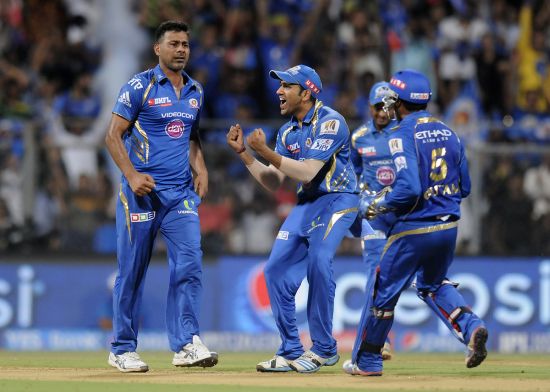
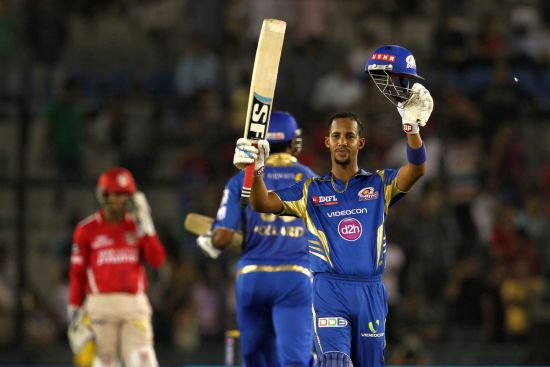
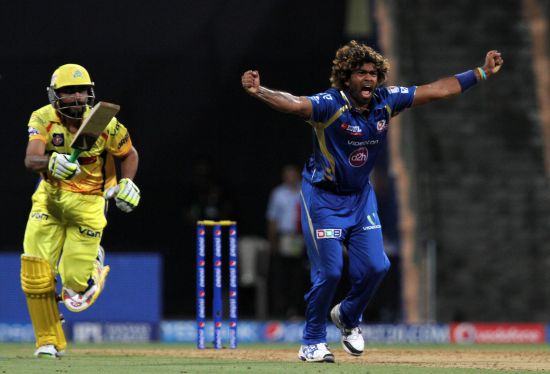
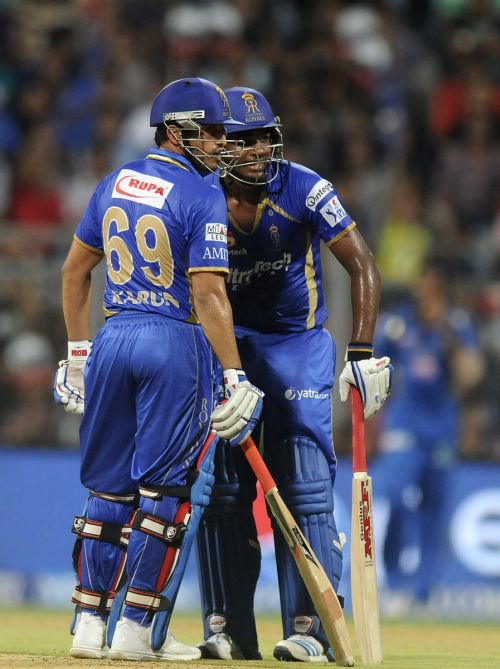
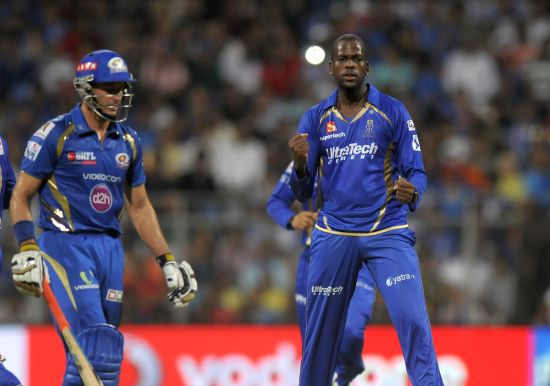
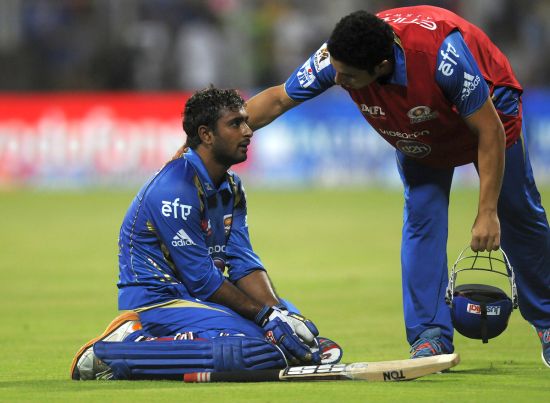
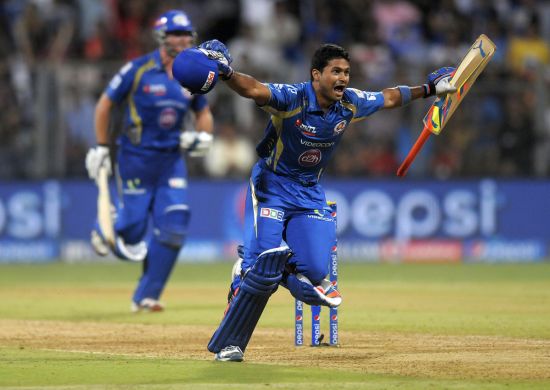
Comment
article